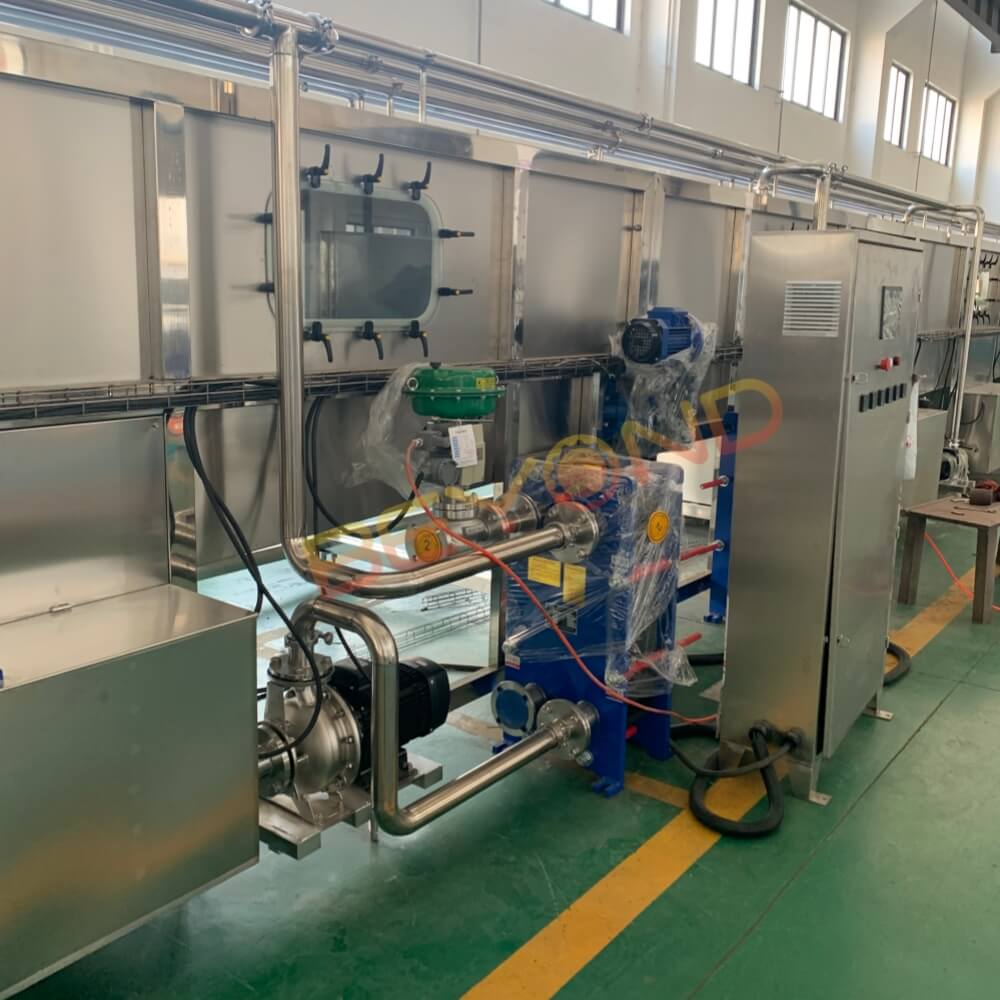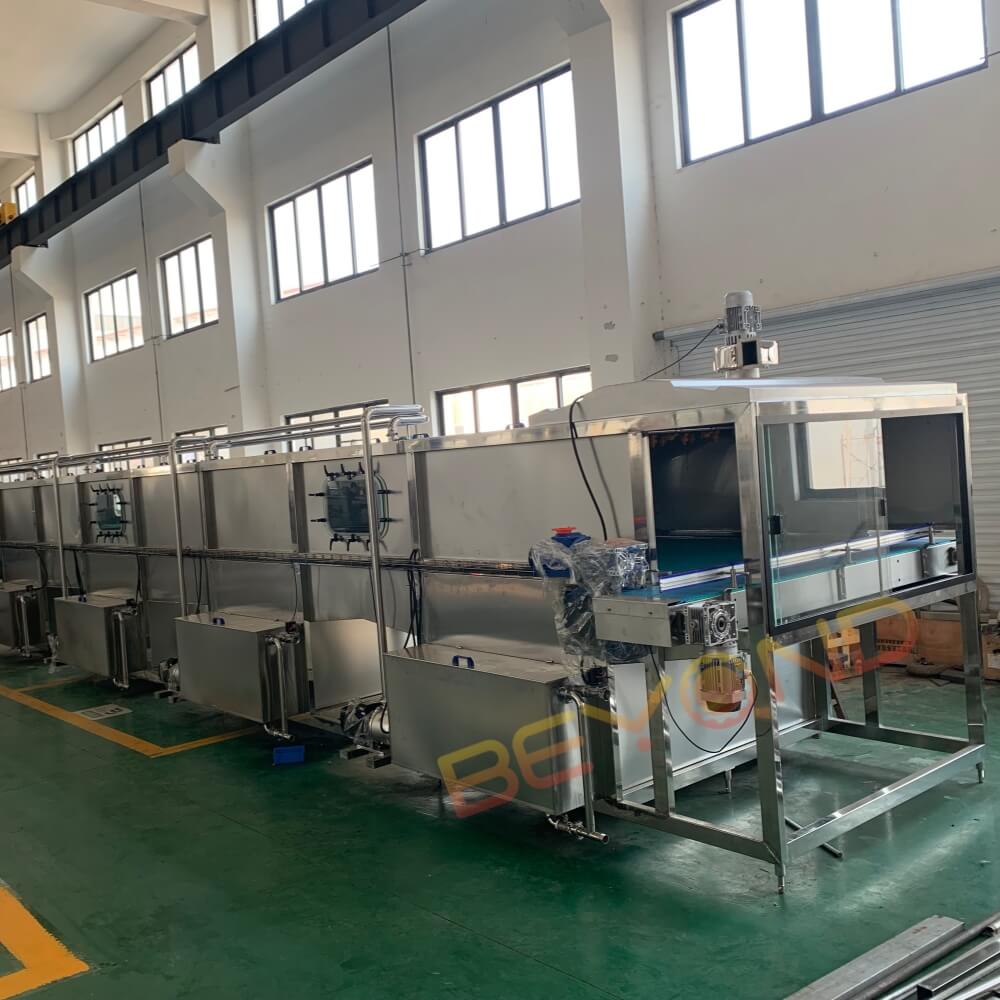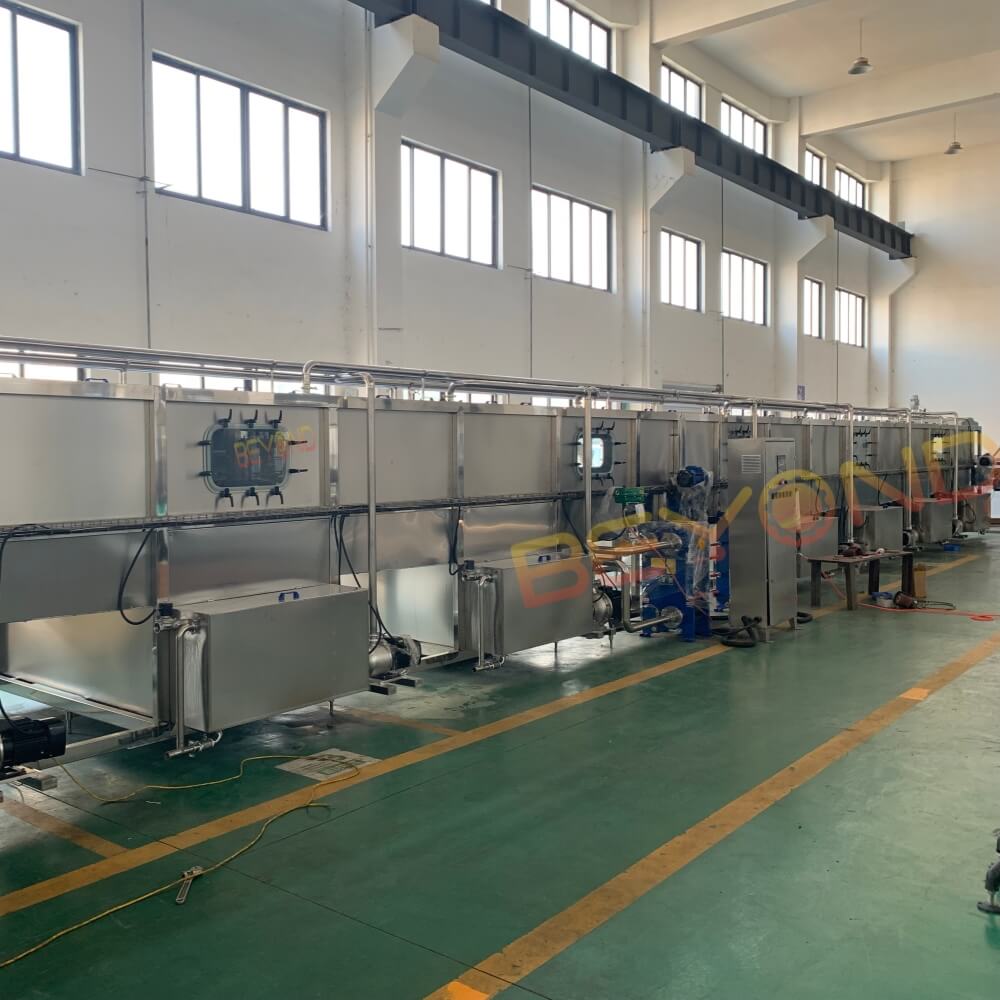Quick Summary: What is Beer Pasteurization and Why is it Critical for Bottled Beer?
Beer pasteurization is a heat treatment process that eliminates harmful microorganisms while preserving flavor stability. In high-speed glass bottle lines like 8000BPH, a tunnel pasteurizer ensures every bottle reaches the market with extended shelf life and safety assurance. Key metrics like chain plate speed, temperature zones, and water recycling systems are vital for consistent performance and compliance.
Introduction
In the ever-evolving world of brewing, the importance of product safety and quality cannot be overstated. A critical component in this process is the beer pasteurization tunnel, which ensures that the beer maintains its flavor and safety by eliminating harmful microorganisms. Recently, a third-party inspection was conducted on a customized beer pasteurization tunnel built for an 8000 bottles per hour (BPH) glass bottle beer production line. The customer appointed an independent engineer to verify the machine’s performance and ensure its compliance with international quality standards.
Pre-Project Communication and Customization with the Argentinian Client
Before production began, we worked closely with our client from Argentina over a period of more than one month to finalize all technical and functional details. The client was in the process of upgrading their existing beer bottling line to accommodate 910ml glass bottles at a throughput of 8000 bottles per hour. During this time, we confirmed numerous critical aspects of the tunnel pasteurizer’s design, including machine composition, conveyor direction, placement of pumps and plate heat exchangers, and total conveyor length. This collaborative process ensured that the final equipment would integrate seamlessly into their production environment. Once all specifications were approved and the order was confirmed, the machine entered fabrication and was completed in approximately 40 days.
The machine dimensions are impressive, measuring 24 meters in length, 2 meters in width, and 1.7 meters in height, making it a robust solution for medium to high-output breweries.
Chain Plate Speed – Avoid Under- or Over-Pasteurization
One of the primary concerns raised by the customer during the inspection was the chain plate speed of the tunnel pasteurizer. The measured speed range during testing was found to be between 0.47 to 1.2 meters per minute. This speed is crucial for ensuring that the beer undergoes the pasteurization process effectively without compromising its quality.
The speed control system is either inverter-based or PLC-based, allowing for precise adjustments to meet the specific needs of the brewery. From industry experience, this speed range is ideal for medium to high-output lines, ensuring that the beer is processed efficiently while maintaining the desired temperature throughout the tunnel.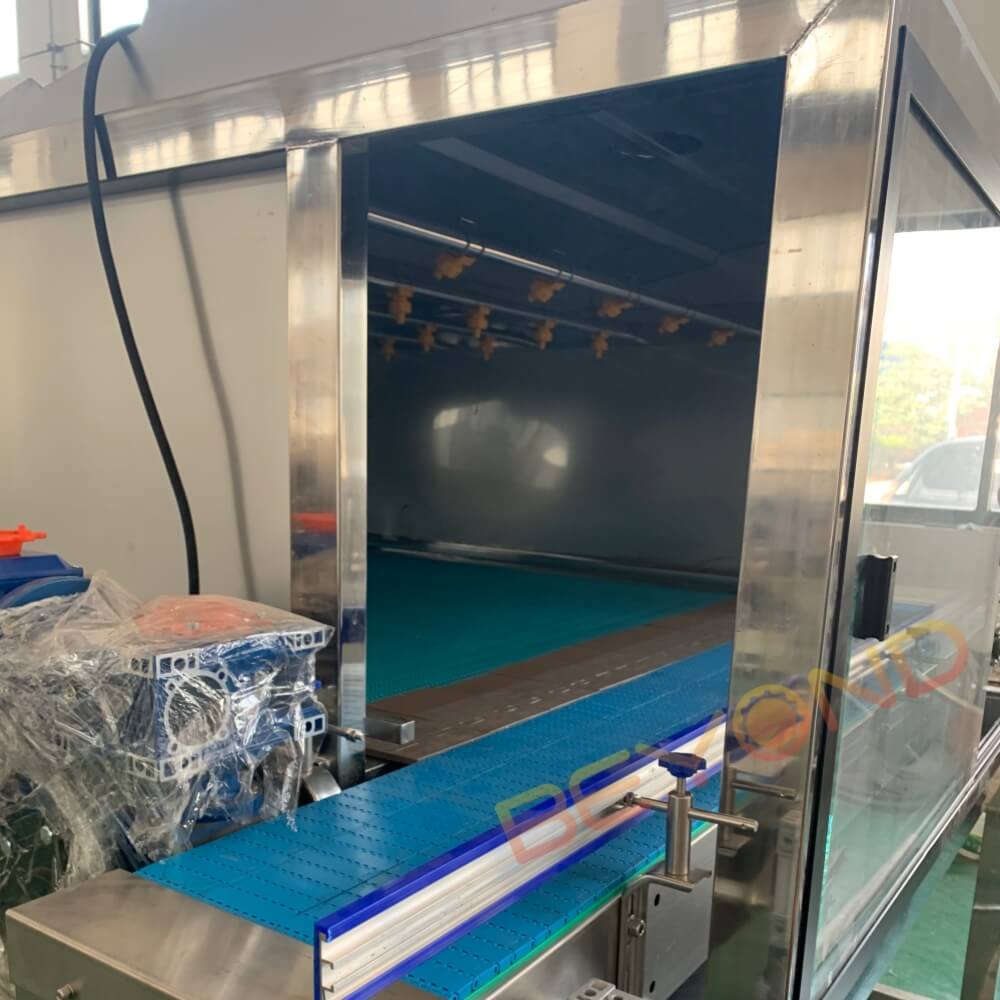
Spray Nozzle and Water Distribution – Ensure Consistent Pasteurization
The effectiveness of a beer pasteurization tunnel heavily relies on its spray nozzle and water distribution system. During our uniformity tests, we observed that the upper side spray nozzles delivered consistent water flow, vital for achieving uniform pasteurization.
The design of the water distribution system incorporates clog-resistant features, ensuring that the nozzles remain operational even under heavy use. Additionally, the use of stainless steel materials enhances hygiene and durability, addressing the brewery’s concerns about maintaining a clean production environment.
Industry Insight:
In real-world pasteurization, it’s not just about setting 65°C. Uneven spray or low-pressure zones can lead to “cold spots” where beer may under-pasteurize. Our system uses CFD-optimized spray nozzle placement and flow balancing valves to ensure >95% uniformity coverage across all lanes, which is critical for regulatory compliance in EU and North America.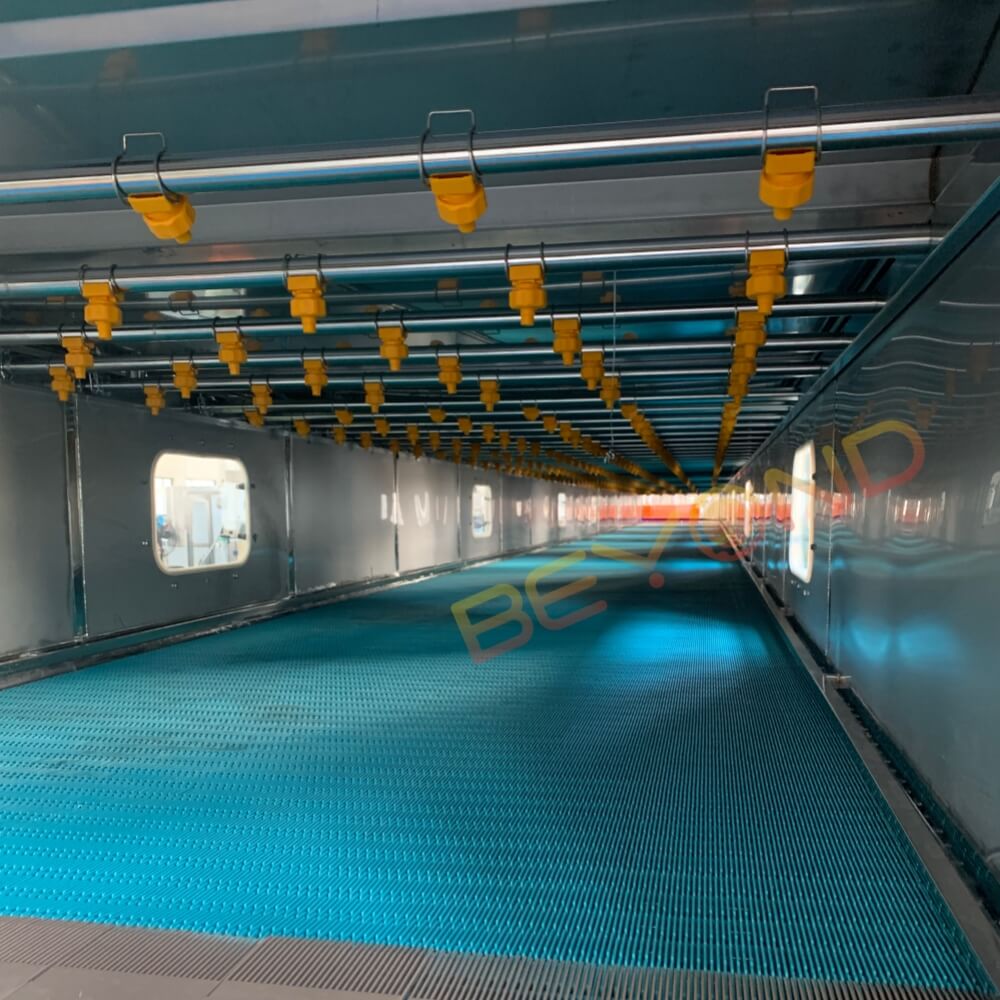
Temperature Control – Prevent Product Spoilage or Flavor Drift
Temperature control is paramount in the beer pasteurization process. Our tunnel is equipped with eight independent temperature zones, each designed to ensure optimal product effect. The temperature sensors used are state-of-the-art, employing PID control integrated with PLC systems for precise monitoring and adjustments.
This meticulous approach to temperature control guarantees that the beer is pasteurized effectively, adhering to the recommended temperature ranges for successful pasteurization.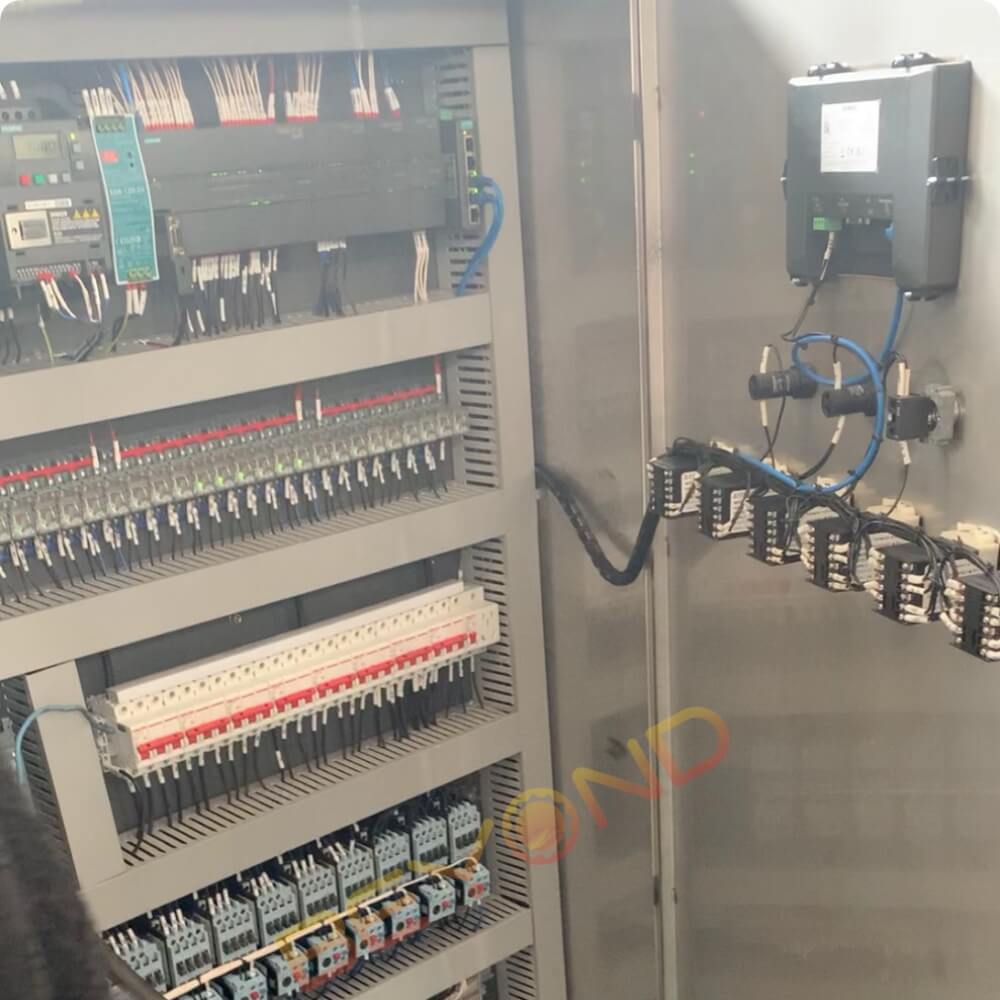
Pasteurization Unit (PU) – Thermal Accuracy and Monitoring
Pasteurization Units (PU) measure the thermal exposure of beer. For instance, 1 PU = 1 minute at 60°C. In our system, PU is dynamically monitored and controlled by PLCs using real-time temperature feedback. Target PU values (typically 8–15 depending on beer type) are pre-set and logged for each production batch, ensuring consistent microbial control without flavor degradation.
Wastewater Recycling – Cut Water Bills and Meet Environmental Audits
Environmental compliance is a growing concern in the brewing industry, and our tunnel pasteurizer addresses this through an efficient wastewater recovery and recycling system. The tunnel is designed to recycle and filter the cooling and heating water used during the pasteurization process.
Equipped with eight independent water tanks, the system features liquid level detection that is displayed in real-time on the PLC screen. This not only ensures efficient water usage but also provides significant cost-saving benefits for the brewery.
Alarm and Safety Systems – Ensure Operator and Product Safety
Safety is a top priority in any brewing operation. During the inspection, various alarm systems were tested, including water level alarms, current protection alarms, and circuit open alarms. The response time for these alarms was swift, and reset protocols were clearly defined.
Additionally, the tunnel features safety lock mechanisms and emergency stop functions, ensuring that operators can maintain a safe working environment while utilizing the equipment.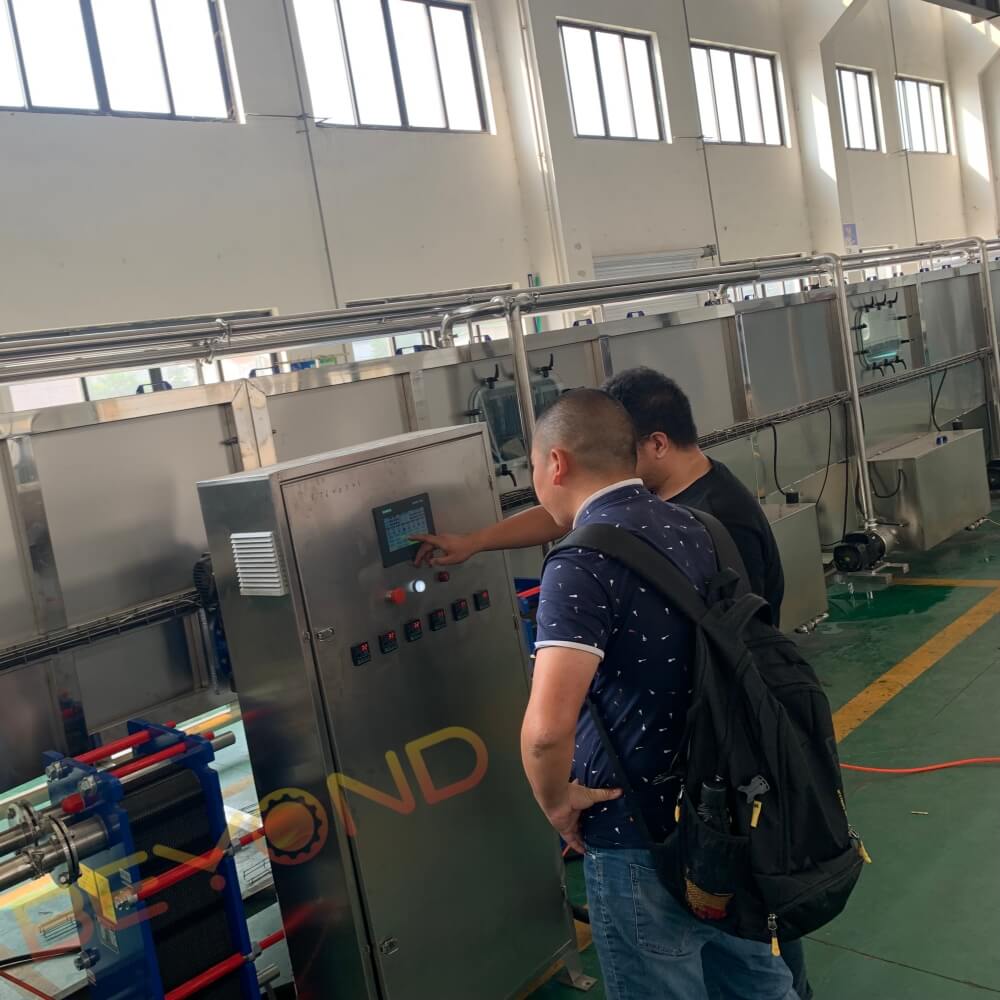
Third-Party Inspection Scope – What Do They Check?
- Chain speed consistency under variable loads
- Uniform water spray distribution across the conveyor width
- Zone-wise temperature stability ±1°C
- Alarm and safety trigger response under simulated faults
- Materials compliance (SS304/316 certificates, welding quality)
- These results are documented in a FAT report and signed off by all parties.
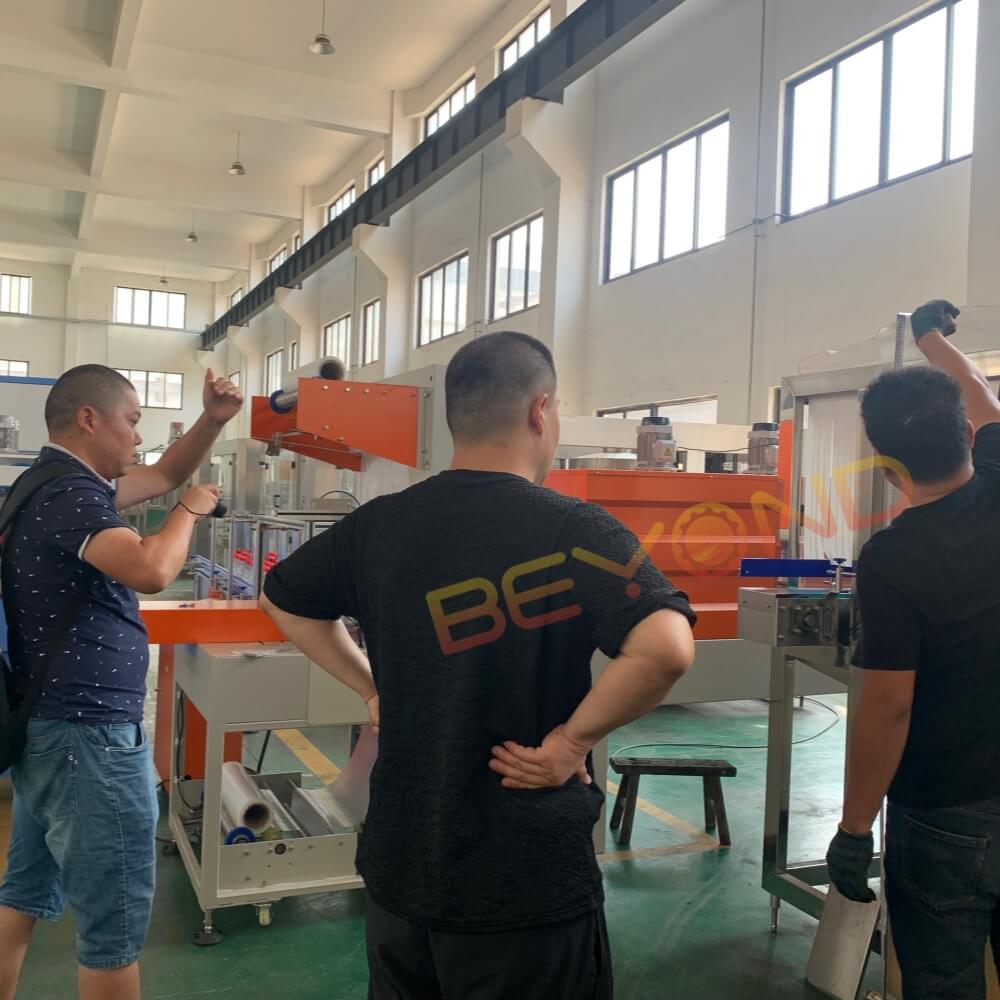
Final Inspection Result and Client Feedback
Upon completion of the inspection, the customer expressed satisfaction with the performance of the beer pasteurization tunnel. Any requested adjustments were promptly addressed, affirming the machine’s capabilities. The third-party validation serves as a robust quality assurance measure, providing the brewery with confidence in their investment.
Ready to Validate Your Beer Pasteurization Project?
Contact us for a live video FAT demonstration or send your bottled sample for a full test run at our factory. Our engineers will walk you through the PU metrics, thermal mapping, and water usage tracking in real-time. Free consultation and technical reports included.

